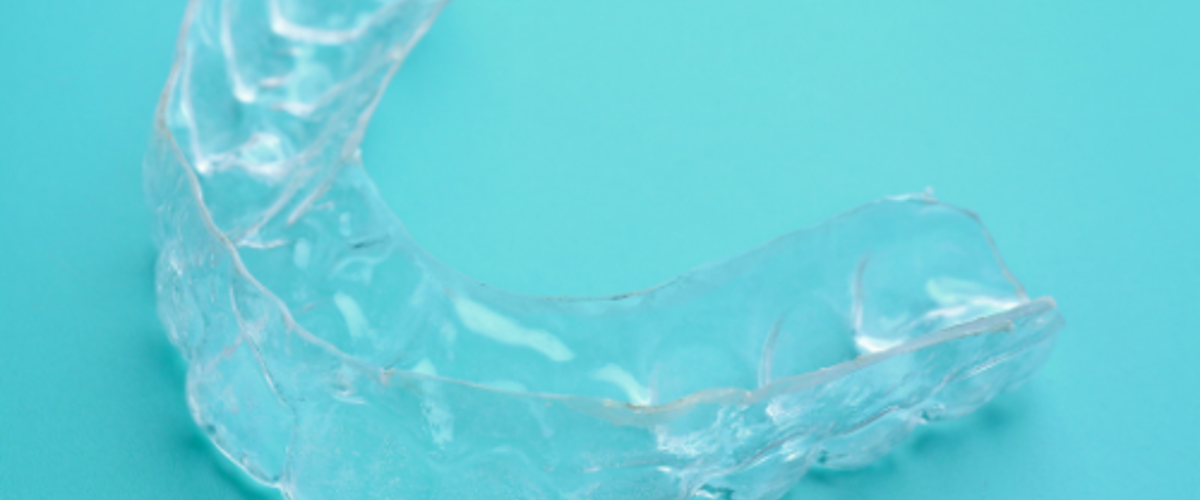| Dental Armour

How to Clean a Night Guard
There are few things in life that can’t be cured with a good night’s sleep. Yet for people out there who grind their teeth in their sleep and clench their jaws, waking up in the morning can be a decidedly painful affair.
Bruxism, as it is known in the dental industry, is a condition whereby an individual grinds their teeth and clenches their jaw in their sleep.
This can damage the teeth and can cause a great deal of pain. Not only in the teeth, but also in the jaw, and also in the form of a headache.
Bruxism is a very common condition, and while it isn’t considered particularly dangerous, it can cause a lot of pain and discomfort. The condition can lead to further dental complications if not addressed.
The good news is that if you speak to your dentist, they will be able to offer a number of solutions - such as dental night guards.
Dental night guards are simple devices, yet incredibly useful for anybody who grinds their teeth in their sleep. However, you do need to know how to look after them. Below, we’ll be looking at how to clean a night guard, as well as looking at some of the things that might happen if you don’t.
What is a night guard?
Before we can look at how to clean a night guard, we first need to make sure that you know precisely what a dental night guard is.
A night guard is an oral dental device that fits into the mouth to protect the teeth and gums from grinding of the teeth and clenching of the jaw during sleep.
A custom night guard looks very similar to the trays that dentists use for whitening the teeth. One thing to note is that a dental night guard will not stop a person from clenching their jaw and grinding their teeth when they sleep. What it does do however, is help to protect the teeth and the gums from any damage which would be caused by bruxism as a person sleeps.
Do you need to clean a night guard every night?
Yes.
If you use a night guard to protect your teeth and gums, you need to make sure that you clean it every single night.
Night guards are worn in the mouth, and as you know, the mouth is the perfect breeding spot for bacteria, as it is warm, moist, and dark. If these bacteria get onto a night guard and are left to multiply and reproduce, you’ll find that this could cause you to get sick.
Not only that, but the mouthguard will also smell and taste pretty awful too.
How to clean a night guard
Now that we know just how important it is to clean a night guard, we need to look at what you can do to clean it.
Cleaning a night guard isn’t just a case of rinsing it under running water, you need to clean it thoroughly and carefully to ensure it is sterile and free of germs and bacteria.
A few tried and tested ways of cleaning a night guard include:
Over the counter denture cleaner
One of the most effective ways of cleaning a night guard is to use a simple over-the-counter denture cleaner.
Denture cleaner is designed to keep dentures clean and sterile when they’re out of the mouth. As it is antibacterial it is also great for use on a night guard.
Vinegar and hydrogen peroxide
Another effective way of ensuring that your night guard is clean, sterile, and free of germs, bacteria, and other microorganisms is to use a vinegar and hydrogen peroxide solution.
Simply spray the night guard with white vinegar, allow it to dry, and then spray again with a 3% hydrogen peroxide solution. This will kill off any germs or bacteria that may be hiding on/in the night guard.
Leave to dry, rinse under clean water, and then dry it again.
Mouthwash
Believe it or not, but mouthwash is another solution that is perfect for cleaning a night guard, because it is designed to kill germs and bacteria.
Simply add a capful of anti-bacterial mouthwash to a glass of water, soak the night guard for 30 minutes, remove, rinse, leave to dry, and you’re all set.
What happens if you don’t clean a night guard?
If you allow germs and bacteria to build up on a night guard, it can make you sick and could cause an infection which could lead to dental complications such as an abscess.
If you’re lucky and you get away without getting sick or picking up an infection, the bacteria could cause halitosis (bad breath) which is still unpleasant.
Can you wash a night guard with soap?
Yes.
Hot water and dish soap is a good combo for washing a night guard, just make sure you rinse it fully and allow it to dry before storing it.
Can you soak a night guard in mouthwash?
Yes.
As we mentioned earlier, mouthwash is great for cleaning a night guard, just don’t leave it soaking for longer than 30 minutes.
Can you get sick from a dirty night guard?
Absolutely.
A dirty night guard will be rife with germs and bacteria that could lead to all kinds of illnesses.
Book your consultation today
If you suffer from bruxism and you find that you’re grinding your teeth and clenching your jaw when you sleep, get in touch with the friendly team at Dental Armour today.
We offer all kinds of dental night guards and oral solutions for bruxism and similar conditions, all for affordable prices so don’t delay, get in touch with us now.
